







Here’s this year’s ranking of the fastest-growing companies PAGE 11











Here’s this year’s ranking of the fastest-growing companies PAGE 11


It’s hitting the market amid of a wave of suburban of ce transformations, which can run afoul of municipalities
By Danny EckerA 31-acre Aon o ce campus that anchors Lincolnshire’s economic engine is being marketed as an opportunity to turn a large swath of real estate into something else, a new test of developers’ appetite for transforming underused suburban o ce properties.
San Diego, Calif.-based Realty Income has hired brokerage CBRE to seek a buyer for the 4 Overlook Point o ce complex in the northern suburb, according to a marketing yer. e site in the heart of the 330-acre Lincolnshire Corporate Center campus is a longtime o ce of insurance giant Aon, whose lease for the entire 818,686-square-foot o ce complex on
the property is due to expire at the end of this year.
e o ering is one of many big o ce complexes whose future will help de ne the post-pandemic character of suburban Chicago, a landscape shaped over the past 50 years by sprawling corporate campuses. Companies have collectively shed more than 3.8 million square feet of o ce space across the Chicago suburbs since the beginning of 2020, attrition that has emptied out big o ce properties and pushed the share of available space to an all-time high of nearly 31%, according to data from brokerage Jones Lang LaSalle. O ce buildings that are mostly vacant
See OFFICE on Page 20



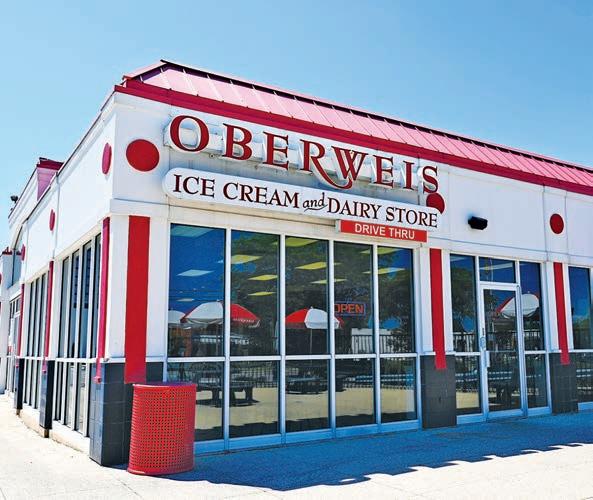
Recently sold through bankruptcy auction for $21.25M
By Ally MarottiThe price tag for Oberweis Dairy, which was recently sold through a bankruptcy auction, was $21.25 million.
The investment arm of Winnetka-based private-equity firm Hoffmann Family of Cos. won the bidding on May 29, but the price was not immediately made public in court documents.
A judge approved the sale during a court hearing June 5. The sale is expected to close June 17. If it fails to close, a runner-up bid could be accepted, according to court documents.
Hoffmann Family of Cos. often buys multigenerational family businesses, but usually targets stabilized companies and helps them transition to the next generation. CEO Geoff Hoffmann said the company was drawn to Oberweis’ legacy. Under its new ownership, the Oberweis name will stay, he said, as will the management team.
The ice cream recipes, too, will stay the same.
“I would never even think about touching those,” Geoff Hoffmann said.
There are some changes in the works. The new owners plan to make upgrades to the North Aurora manufacturing plant and look at ways to expand capacity. They also want to prioritize upgrading Oberweis’ 40 ice cream shops, Geoff Hoffmann said. Eventually, that number will grow, as the ice cream stores expand across Chicago and to other parts of the country. Hoffmann said there is no set target for additional store count yet.
Oberweis’ home delivery is also set for an expansion. The plan is to expand the customer base in existing markets, but also expand geographically, growing the offering into areas where the company opens new ice cream shops.
“We are a very pragmatic organization, but we also view ourselves as a permanent source of
Michigan State University Federal Credit Union is following the money and its second-biggest alumni base into the Chicago area as it expands out of its home state for the first time ever.
“We were created to serve Michigan State,” said April Clobes, president and CEO. “Over our 87 years, the students tend to move to the Chicago region after graduation and settle in that area.”
The credit union, with a total of $7.68 billion of assets, already has a combined $100 million in loans and deposits on its balance sheet from members who moved to Illinois after joining during their time at Michigan State.

gain of about 6% from its total members at the end of 2023.
capital,” he said. “We’re not too concerned with short-term financial impact, because our compass is pointed toward the next 50 to 100 years.”
Oberweis, which traces its roots to a horse-drawn-wagon milk delivery operation in 1915, filed for Chapter 11 bankruptcy protection in April. After four generations of ownership, the North Aurora-based company ran into financial trouble in the years following the pandemic. Oberweis started bankruptcy proceedings to search for a buyer after a failed attempt to sell itself late last year.
At its height post-pandemic, Oberweis brought in $116 million in annual revenue, ran its ice cream shops, employed up to 1,500 people during the summer, and operated delivery routes in several states. But by last fall, the company was losing money and shareholders no longer wanted to watch it hemorrhage.
Allured by Oberweis’ long-standing reputation and the money-making potential that still exists in the dairy industry, bidders started circling soon after the bankruptcy filing. The stalking horse bid, which set the low end of the bidding price, was from Brian Boomsma, co-owner of Pullman-based egg, dairy and deli products producer Dutch Farms. The second bid, which came in hours after the first, was from Hoffmann Family of Cos., which was launched by executive search firm DHR International founder David Hoffmann. Both companies bid north of $20 million.
Included in the sale were Oberweis’ North Aurora production facility and the equipment inside; operation of its 32 leased ice cream shops along with ownership and operation of its eight owned shops; operation of home delivery services in Illinois, Missouri, Indiana, Michigan and Wisconsin; sale and distribution of dairy products to groceries; franchising of ice cream stores and pizzerias; and Oberweis’ trademarks and other intellectual property.
But the Chicago branches, opening in neighborhoods filled with recent graduates, are critical to finding new members. Additionally, existing members are more likely to add products and services if they have a neighborhood location to visit.
“Despite the world being very digital today, branching is still an area of growth for financial institutions,” Clobes said. “People still look to a physical location for their initial account opening.”
The company faces competition from other banks looking to boost their presence in the city to increase their customer base on both the business and retail fronts.
Michigan State University Federal Credit Union expects the Chicago-area expansion will boost its membership by about 20,000 people during the next three years, which would represent a
The company plans to open five branches in Chicago by the end of 2024. The first two, located in Old Town and Wicker Park, are set to open this summer.
The branch openings are in ad-
“Despite the world being very digital today, branching is still an area of growth for financial institutions.”
April Clobes, Michigan State University
Federal
Credit Union president and CEO
dition to the company’s suburban acquisitions of Algonquin State Bank, which has $144 million in assets, in Algonquin and McHenry Savings Bank, with $322 million in assets. Those deals, which will add another five locations, are still awaiting regulatory approval.


The acquisitions are an outlier as dealmaking in the financial industry has remained slow in 2024, with stubbornly high interest rates acting as a brake on activity.
The Chicago branches will be the credit union’s first outside of Michigan and are part of its geographic expansion beyond East Lansing, Mich., which started in earnest in 2020. Its move into Chicago comes with a full, undisclosed advertising spend, which will include billboards in targeted neighborhoods and signs on CTA trains. Radio and television commercials, as well as a social media campaign, also are planned as the branches open, Clobes said.
“Our growth strategy is threepronged approach,” Clobes said. “Growth that is organic which comes through branching where the membership is, as well as acquisitions and then full digital strategy.”
“Their team was in place to educate my team and show us how to use all of these tools that we had previously had zero experience with at any of our other banking relationships.”
Jason Bone VP of Sales, Bone Roofing Supply, Inc.





From the ashes of old, the newly reformed convenience store chain is setting up shop in about a dozen of its old spots | By
Get ready for Foxtrot 2.0.
Mike LaVitola, founder of the upscale convenience store, is preparing to reopen about a dozen Foxtrot shops. All the stores he plans to reopen will be in existing locations, and most of them will be in Chicago. The first two likely to reopen this summer are the Gold Coast and Old Town stores.
Working with LaVitola is David Magruder of Further Point Enterprises, the New York-based company that placed the winning bid in a May 10 sale of Foxtrot’s assets. LaVitola will be executive chairman of the new company. Magruder, who was part of a fund that invested in Foxtrot several years ago, is acting as an interim chief financial officer
Ally Mariotti“I think everyone was really surprised that a brand that was this strong . . . could just fold up.”
Mike LaVitola, Foxtrot founder and executive chairman of Further Point Enterprises
Tax hike on video gambling is projected to bring in $35 million next year, while the state’s sports betting industry will see a bigger increase
SPRINGFIELD — In order to boost infrastructure spending and avoid a projected fiscal cliff facing the state in the next couple of years, Democrats who control state government are betting on two of its most rapidly growing revenue sources: sports wagering and video gambling.
The industries — both legalized within the last 15 years — have developed into two of the most robust markets in the nation; Illinois’ sportsbooks collectively have the fourth-largest handle among all states, while Illinois’ video gambling industry is by far the largest of any state.
When proposing his budget plan in February, Gov. J.B. Pritzker suggested increasing taxes only on sports betting. But despite pushback from some Democrats —and the sportsbooks’ massive spend on lobbying to kill the tax hike — the governor got above and beyond what he’d requested from the legal gambling industry, even as some of his other proposed new revenues were left on the cutting room floor in the final weeks of the General Assembly’s spring legislative session.
In the end, Illinois’ growing video gambling industry will see a 1 percentage point tax hike that’s estimated to bring in another $35 million next year for infrastructure projects. Mean-
while, the state’s burgeoning sports betting industry will see a more substantial increase in taxes from a flat 15 percent rate to a graduated structure ranging from 20 percent on the lowestearning sportsbooks to 40 percent for the highest earners. The change is projected to generate an extra $200 million, which will be directed to the state’s General Revenue Fund, Illinois’ main discretionary spending account.
The change is projected to generate an extra $200 million, which will be directed to the state’s General Revenue Fund, Illinois’ main discretionary spending account.
Those promised windfalls would bolster already sizeable sources of revenue for the state. In the fiscal year that ended June 30, 2023, Illinois netted $142 million in taxes from sportsbooks, while video gambling terminals in bars, restaurants and dedicated gaming cafes generated $814 million.
Rare large-scale offering of eight floors — nearly 230,000 square feet — adds to a record amount of office space on the market
By Danny EckerLandlords sick of watching companies unload swaths of office space amid the rise of remote work have another reason to feel nauseous.
In a rare large-scale offering at its East Loop headquarters, Health Care Service Corp. has formally hit the market with nearly 230,000 square feet of its workspace available for lease at 300 E. Randolph St., according to a marketing flyer from brokerage Cushman & Wakefield. The parent company of Blue Cross & Blue Shield of Illinois owns the
54-story tower overlooking Maggie Daley Park, which has been mostly full since HCSC added a 24-story vertical expansion to the property in 2010. Spanning eight floors in the high-rise portion of the tower, the available space adds to a record amount of vacancy flooding the downtown office market. The share of available workspace in the central business district recently topped 25% for the first time ever, according to research from brokerage CBRE, driven by changing work patterns in the wake of the COVID-19 pandemic.
The space-shedding trend has combined with higher interest rates over the past couple years to set off a historic wave of foreclosures and other distress, threatening the vitality of Chicago’s urban core.
While HCSC’s space has been quietly marketed in recent months, vacancy data from CBRE and other commercial real estate services firms did not account for the offering.
“As a company, we regularly evaluate all our assets, including real estate, to ensure we’re

Demand is still outpacing supply in the downtown rental market, though apartment seekers got some good luck as a wave of new high-rises opened and helped cool o prices.
So far this year, 2,400 new apartment units have become available downtown, with a total of 3,600 projected to be delivered in 2024 as developers complete projects that were nanced before the Federal Reserve’s interest rate hikes, according to the Chicago o ce of Integra Realty Resources. at’s a jump from about 2,900 units brought to market in 2023 and 1,500 in 2022.
Net monthly rent at top-tier, or Class A, apartment buildings downtown was $3.68 per square foot on average in the rst quarter, up 1.94% from the same period in 2023. It was the second quarter of lukewarm growth in a row, after downtown rents rose 1.7% in the fourth quarter of 2023, according to Integra’s latest report.
e fact that building owners were still able to raise rents even with a wave of new high-rises welcoming tenants bodes well for the market and shows that lots of people still want to live in downtown Chicago, according to Integra Senior Managing Director Ron DeVries.
“We’ve gotten a little bit of rent growth with a lot of supply hitting the market, which tells us that the market is really strong and that the developers are doing well,” DeVries said.
While rent growth in the last two quarters has been below average compared to trends over the past decade, it marks a mellowing out after year-over-year spikes in rent growth as high as 32% in 2021, when the downtown renters returned to the market a year after the onset of the COVID-19 pandemic.
Absorption, a measure of demand that shows the change in the number of occupied apartments, hit 1,390 units in the rst quarter — the highest it’s been since the downtown market rebounded from the pandemic, due to the new supply. Integra forecasts total absorption of 2,790 units for 2024.
“It just indicates that there’s still really strong demand for rental product downtown,” DeVries said.
Some of the factors keeping downtown rental demand up are elevated interest rates, which are thwarting would-be homebuyers and keeping them in the renter pool for longer, and employment relocations to Chicago, including recent college graduates.
“ e Big Ten kids are coming back to Chicago,” Mike Zucker, whose rm Peak Properties manages thousands of local apartments, said.
Still, the continued prevalence of remote work has increased demand for housing options further from the central business district. Rents are rising more at Peak Properties’ units in Chicago neighborhoods outside downtown, Zucker

Rent growth moderating
Rents at top-tier apartments in downtown Chicago were up 1.94% year-over-year in the rst quarter of 2024 as landlords sought to ll the 2,400 units added to the market so far in 2024.
Still is adding thousands of jobs based in Chicago
By John PletzUnited Airlines is still on a hiring binge, although the pace has slowed.
e airline says it will hire nearly 10,000 employees this year, including 2,300 in Chicago, where it is headquartered. Hiring in Chicago will be 53% greater than in its next-biggest o ce, Houston.
United is Chicago’s 12th-largest employer with about 17,000 workers, according to Crain’s Data Center. About two-thirds of them work at O’Hare International Airport.
e airline is bene ting from slowdowns in other industries, especially technology, and is seeing a surge in applicants.
factors in the
Supply ups and downs
The number of new apartments added to the market has been trending upward but is projected to drop sharply in 2025. Units added Absorption
Like other airlines, United hired at a torrid pace in the recovery from the travel-crippling COVID-19 pandemic, as ying has rebounded, especially leisure travel. Overall, the International Air Transport Association expects a record number of travelers worldwide this year. North American air travel is expected to increase 7%, and United anticipates it will carry 5% more passengers this summer than last year.
United hired roughly 15,000 workers per year in each of the past two years as travel recovered, and the airline made an aggressive push to grow market share coming out of the pandemic. Hiring this year already was decelerating and was further slowed by delays in the delivery of new aircraft, particularly from Boeing, which continues to face increased scrutiny from federal regulators of manufacturing mishaps.
said. at’s in part because those areas don’t see the in ux of new supply that the Loop does.
A critical mass of the new apartments that were added downtown this year came to the West Loop, where three buildings totaling just north of 1,000 units have opened so far this year: the 343-unit Cassidy on Canal in the Fulton River District, the 368-unit Arthur on Aberdeen in the Fulton Market District and the 298-unit Coppia at 1101 W. Van Buren St. Occupancy at downtown apartments was 93.8% in the rst quarter, down slightly from 94.4% during the same period in 2023.
“ ere’s a little bit more vacancy in the market but I think that’s a very short-term issue because we just delivered these new buildings,” DeVries said.
ough developers’ need to ll new buildings tempered rents, one sign that it’s still a landlord’s market is the absence of the concessions — incentives for renters like a month of free rent or gift cards — that are normally prevalent when lots of new units come online, according to Integra’s research.
Even without the freebies, this summer is likely a better time to be looking for a downtown apart-
ment than next. e number of new apartment units delivered in 2025 is expected to fall to a nominal 500 as developers are hamstrung by a tight lending market that makes it di cult to nance their projects and get cranes in the sky.
Diminished supply combined with strong demand means rent spikes as high as 5% to 8% could be on the horizon for 2025, compared with Integra’s predicted increase of about 3% to 4% for 2024.
“I think next year at this time these same units are going to be going for a far amount more money,” DeVries said.
United stopped bringing on new pilots in May and June but is hiring again, the company said. It’s bene ting from cutbacks in tech, where giants such as Google and Microsoft laid o thousands last year and continue to shed jobs.
The airline received more than 10,000 applications for digital technology jobs, and so far it hired a little over 120, says Kate Gebo, head of human resources and labor relations. Most of its technology jobs are in Chicago.
Overall, the airline has received more than 260,000 applications this year and has hired about 4,000 people, Gebo said. United received 40,000 applications for 300 internships.
CONGRATULATIONS AND THANK YOU!
United Way of Metro Chicago is proud to honor David Casper, Peoples Gas, and Don V. Villar with the 2024 Stronger Neighborhoods Awards. We thank our event co-chairs and many generous sponsors who propelled our 2024 event to great success.
Your support and partnership will help build a stronger, more equitable Chicago region. LIVEUNITEDchicago.org/stronger-neighborhoods
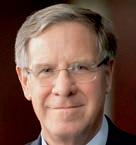

Arbor Investments / The Purcell Companies
David C. Blowers
John A. Canning, Jr.
Linda Coberly
Lester Crown
Wendell Dallas
Jim Denny
Robert B. Ford
Darrel Hackett
Teresa Wilton Harmon
Torrence L. Hinton
Travis C. Hunter, Jr.
Timothy Knight
Randy Lyon
John W. Madigan
Carina Markel
as of May 30, 2024
THANK YOU TO OUR GENEROUS SPONSORS WHO MADE THIS EVENT POSSIBLE.



Michael O’Grady
Christopher A. O’Herlihy
The Honorable Bruce and Diana Rauner
Chris Reyes
John W. Rogers, Jr.
Patrick G. Ryan
Michael J. Sacks
Scott C. Swanson


CVS Health’s reported search for a private equity partner to fund Oak Street Health grabbed industry watchers’ attention, but they cautioned against jumping to the conclusion that trouble is brewing at the primary care provider.
CVS acquired Oak Street just over a year ago in a $10.6 billion deal and confidently touted expansion plans, including opening dozens of new clinics in 2024. The transaction was a big bet for CVS, which is looking to replace some of its retail space with clinics and integrate primary care operations with its pharmacy division and Aetna insurance services.
Bloomberg recently reported CVS has been working with financial advisers to find capital to back the new clinics, including joint venture opportunities with private equity investors, according to “people familiar with the matter.”
A CVS spokesperson declined to
comment on “rumors or speculation” and said last week the company remains committed to expanding Oak Street’s clinic footprint.
Oak Street focuses on care for seniors, particularly those covered by Medicare Advantage. It runs a fully capitated business model, meaning providers are paid a flat fee up front to care for patients and assume the risk on patient outcomes. CVS added more than 30 Oak Street clinics in the 12-month period ended March 31.
One of the big questions is if anything has changed for CVS in the year since acquiring Oak Street, said Jeff Goldsmith, president of consultancy Healthcare Futures.
“They wouldn’t be looking for external capital if they felt that they could justify putting more of their own money into it,” Goldsmith said. “That’s the question that [investors] are going to ask: How do I get my money back? What’s the path for profitability for this business?”

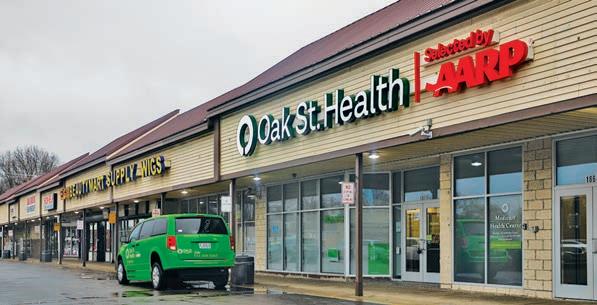


At Bernstein’s Strategic Decisions Conference on May 29, CVS executives said Oak Street performed as expected in the first quarter.
search at Jefferies, said the search for investors could stem from pain points across CVS that aren’t tied directly to Oak Street. For example, subsidiary Aetna reported $900 million in higher-than-anticipated medical costs for Medicare Advantage in the first quarter.
“Their messaging is the problem fundamentally right now is not Oak Street,” he said. “This is one of the levers they can pull to make sure that the commitments they made to investors on 2025 earnings per share are achievable.”
Clinics can also take a couple years to reach profitability as they ramp up operations and establish patient panels. Having another investor would mean CVS doesn’t have to hold all those losses on its income statement, Slevin said.






“Since the time of the acquisition, we’ve been very clear that we might explore some sort of alternative financing mechanism to think about the growth there. That’s our job as management to continually try to think about how do we balance short term versus long term,” Chief Financial Officer Tom Cowhey said at the conference on May 29.
Executives have previously noted their intention to explore other avenues to accelerate growth at Oak Street.
“If it were to be a financing transaction, I think it’s a function of, how do we think about the near-term earnings pressure versus the higher cost of capital of doing something like that?” Cowhey said May 29.
Goldsmith said CVS could be looking at options similar to what insurer Elevance Health did in April, when it entered a definitive agreement with private equity firm Clayton, Dubilier & Rice to form a company focused on primary care. If approved by regulators, the partnership would combine services from Elevance’s Carelon Health and Clayton, Dubilier & Rice’s Millennium Physician Group, as well as its digital health company Apree Health.
Another example is health insurance company Humana’s 2020 deal with private equity firm Welsh, Carson, Anderson & Stowe to develop primary care clinics.
Jack Slevin, vice president of healthcare services equity re-
Michael Abrams, managing partner at consultancy Numerof & Associates, said he wouldn’t jump to the conclusion that CVS is taking a step back from Oak Street. Several economic factors are working against CVS, he said. Inflation continues to drive up the costs of providing care, and reimbursement rates fail to keep up with the rising costs. Capital is also more expensive to secure in a higher interest rate environment, he said.
“It is a mixed story in terms of, how attractive is this?” Abrams said. “They think they have something viable, but they don’t have the cash to do it on their own.”
CVS is one of several big retailers that have invested in healthcare services delivery in recent years, with varied results. Others are Walmart, Walgreens, Amazon and Kroger.
Some retailers have recently backed away from healthcare services. Walmart Health announced in April it would close all 51 clinics across five states and shut down its virtual care platform, citing an unsustainable business model. Walgreensbacked VillageMD, another primary care provider, has shuttered roughly 150 clinics this year.
Caroline Hudson writes for Crain’s sister site Modern Healthcare.
Small businesses in growth mode typically rely on informal interactions to develop their offerings, connect with customers and employees and conduct operations. To synchronize all these efforts, they generally develop some form of a unique operating system — a collection of processes, rules, systems and ideals.
Whether intentional or unintentional, an operating system is likely built on instincts, lessons from mentors or books you’ve read about building and running a business.
So far, your unique operating system may have served you well. But underdeveloped systems create something akin to technical debt in software enterprises and cause stagnation. Imperfections, impurities and quick fixes accumulate and eventually cause organizational dysfunction, leading to challenges that manifest in what appears to be insurmountable barriers to growth.
Perhaps each department in your company is operating with different goals, you can’t scale up beyond a certain revenue point or your leadership team can’t agree on how to allocate resources.
In his book “Traction,” entrepreneur and visionary Gino Wickman describes “hitting the ceiling” as
stalled growth or facing a business challenge you can’t overcome. He shares the common signals that you’re hitting the ceiling through several common hurdles founders and entrepreneurs face. A few examples include:
Low growth or stagnation. No matter your actions, you can’t seem to progress to the next level. You feel overwhelmed and unsure how to proceed.
Insufficient profit. No matter your efforts, you can’t generate the profit you’ve sought to achieve.
People issues. You are frustrated with the people who are meant to help you build and grow your business, like team members, customers, vendors or partners. They don’t seem to listen, understand you or follow through with their agreements. In short, you’re all on different pages.
As a successful entrepreneur who sold his business, Wickman developed a business operating system, drawing on his own experience and that of his friends with like backgrounds, to get at the root cause of these signals and reinvigorate the business.
They call it the Entrepreneurial Operating System, or EOS. The premise is that every company is made up of the same six compo-
nents: vision, people, data, issues, process and traction.
If each of these is healthy, your company is bound for success. If a few are struggling, you know which areas of the company need the most attention and support.
When each area of the EOS model is receiving the right amount of focus, you’ll know it.
Some of the ways these components present in a healthy organization, along with insights into a few of the key tools used to get an organization to that place, include:
Unified vision and clarity: The company has a clear, shared vision of where it wants to be, articulated through an exercise documented in a tool called the Vision/ Traction Organizer.
Streamlined operations: The operating system provides a highly refined approach to the talent function, starting with a tool known as the Accountability Chart. When fully implemented, roles and responsibilities are clearly defined, eliminating confusion and ensuring that everyone knows what they have agreed to.
Data-driven decision-making: The adoption of an EOS Scorecard means decisions are based on real, actionable data. Regular tracking of measurables ensures
the company remains agile and able to respond to changes or challenges effectively.
Proactive problem-solving:
An Issues Solving Track is ingrained in the company culture, fostering an environment where issues are addressed promptly and systematically.
Consistent and effective communication: The Meeting Pulse, including Level 10 Meetings that create a standard structure for productivity, quarterly meetings and annual sessions, is fully integrated into the company’s routine.
A culture of accountability and continuous improvement: The full implementation of EOS tools and processes creates a culture where accountability is valued and continuous improvement is a constant pursuit.
Sustainable growth and success: The company experiences sustainable growth, with the EOS framework providing the structure and tools needed to scale effectively, navigate challenges and seize new opportunities.
While EOS is a great option, there are also other proven operating systems available for small businesses. While entrepreneurs can decide which is best for their business, it’s important to remember that EOS
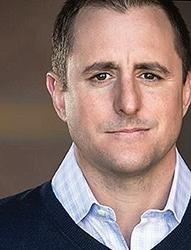
Alex Hodgkin has been an entrepreneur, strategist, capital markets specialist and investment banker. He has been instrumental in creating the University of Chicago Booth School of Business’ Entrepreneurship through Acquisition program, where he currently serves as a senior adviser and entrepreneurin-residence at the school’s Polsky Center.

and other operating systems are not Band-Aids or a magic wand. They can’t fix your organization’s issues overnight, but they can help you fix them for good.


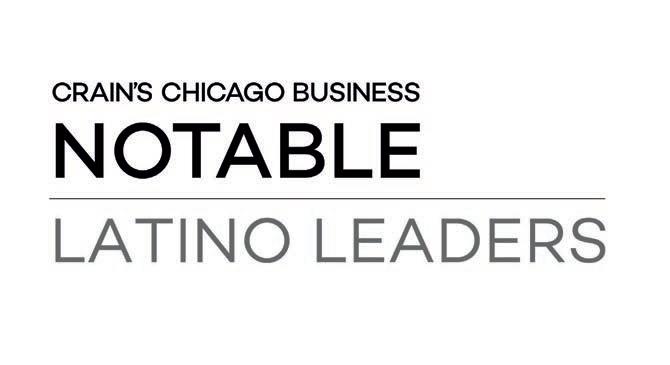
You’ve got to hand it to her. When she was mayor, Lori Lightfoot won a prize her predecessors coveted but failed to achieve: a license to set up a Chicago casino. Whatever you may think of picking the pockets of gamblers to finance government — and we tend to take a fairly dim view of it around here — mayors as far back as the second Daley dynasty hankered after a state-created license, and Lightfoot finally snagged it, all in an effort to shrink a budget hole of the sort that opens up when governments spend more than the governed are willing to pay for, as has been the case in Chicago for ages.
So, as far as it goes, Lightfoot’s casino victory was noteworthy. The picture got a bit more complicated, however, once she set about the business of figuring out what to do with it. As Crain’s reported in December, a federal law enforcement agency and Chicago’s inspector general were at the time looking into the process by which Bally’s won the Chicago casino license, inquiries that were perhaps not surprising considering the losing bidders’ grumbling over the result. What is perhaps more surprising, however, is that Lightfoot’s successor, Brandon Johnson, is taking a long, hard second look at the Bally’s plan himself. As well he should.
From the very beginning, there has been good reason to wonder whether Bally’s, a Rhode Island-based casino operator that’s far from the biggest in the field, has the chops to finance and build a project of the magnitude it’s envisioned for the former Chicago Tribune printing plant site in River West. Bally’s has said it expected to break ground on the $1.7 billion casino

campus on July 5 but, in a June 10 meeting with the Chicago Sun-Times editorial board, Johnson expressed more than a little doubt about all that.
Asked if he believes the project will ultimately be built — and, if so, whether it will end up sporting all the features originally pitched in its many glossy architectural renderings — Johnson sounded less than certain.
“I wish I could say something definitive today. I know our team is working with ownership to figure it out like we figured out some of the other things that I’ve inherited,” Johnson said, referring to his re-
cent reworking of a separate legacy from Lightfoot, the massive O’Hare International Airport expansion plan. “It just has to make absolute sense,” the mayor added. “I think that one’s still to be determined, to be perfectly frank with you.”
That’s not exactly the sort of thing one is accustomed to hearing just a few weeks before the shovels start digging on a project of this scale, but Johnson isn’t wrong to be circumspect. As Crain’s has reported, Bally’s is scrambling to secure $800 million to build the casino campus, and the debt-laden company itself is the subject of infighting among investors, some of whom
have attempted to block a takeover push by company Chairman Soo Kim. And Wall Street credit rating agencies have recently looked askance at Bally’s creditworthiness.
Meanwhile, Bally’s still hasn’t settled on where it’s going to place the giant hotel tower it pitched for the project — this after discovering earlier this year that the original location would damage city water pipes.
All of which raises some thorny questions for Bally’s — and for the mayor. Among them:
If the Freedom Center plan gets mothballed for these or any other combination of reasons, then what’s next? Would Johnson be wiser to push to convert Bally’s temporary casino at Medinah Temple into the permanent site? A gambling industry expert quoted by the Sun-Times seemed to think this is a likely outcome.
And then: Can such a dramatically scaled-down casino deliver the kind of revenue City Hall has been banking on to prop up its finances? As Crain’s reported June 10, the Medinah Temple site is not on schedule to meet Johnson’s 2024 budget plan, which anticipates $335 million in local tax revenue from the site — or an average of $3 million per month. In May, the most recent month measured, the Medinah location brought in a little over $1.4 million.
So, if the current casino deal goes south, how does Johnson intend to replace the revenue he expected to draw from a much larger casino? The situation brings to mind an old adage: Never gamble more than you can afford to lose.
Right now, we face a crossroads of Chicagoans and visitors alike, who know how great a city Chicago remains and the potential of what we could become.
As a world-class city, we have plenty to boast about. The Loop has the fastest-growing residential downtown in the U.S. Chicago has retained the title of best big city in the U.S. for seven years running and for 11 years has been the top metro area in the U.S. for corporate relocation and growth. We continue to lead office return outside of Texas, exceeding New York, San Francisco, Los Angeles and others, and the Loop features the largest arts district in the U.S. outside of Manhattan’s Broadway theater district.
However, there’s no denying that Chicago’s downtown, like those in other acclaimed cities, faces a crisis at the ground level. Our storefront economy has
peaked at its highest vacancy on record, yet pedestrian activity on State Street in the Loop sits within 5% of 2019 levels on an average weekly basis. This data proves that Chicagoans and visitors still love our “great street” and return in record numbers, but we have to give them a reason to stay. We need more investors to bet big on the Loop right now. The data support the choice. Smart, forward-thinking companies see this.
Google’s Thompson Center development, J.P. Morgan’s Chase Tower renovation and Mayor Brandon Johnson’s recent mixeduse development announcement for LaSalle Street mark a welcome start of this shift, but many of those projects will take a few years to make an impact. In the meantime, storefront vacancies continue throughout the Loop, particularly on the south end of State Street.
The Chicago Loop Alliance remains committed to working

with partners, from the mayor’s office to retail brokers, to actualize solutions to the threats pervading our retail economy. As the “front porch” of Chicago, the Loop needs to innovate and adapt to the changing landscape of consumer habits.
While we work together to ad-
dress the need for demand to meet supply, our organization is investigating interactive, artistic elements that attract potential investors to State Street while beautifying vacant spaces. Options like artist activations during the Democratic National Convention, art studios or pop-up
spaces showcase a variety of opportunities for potential retailers and the commercial real estate industry to take a bet on leasing.
Asking Chicagoans to bet big on the Loop means putting our money where our mouth is. We know the risk of leasing thousands of square feet of retail space in an era of e-commerce requires that brokers and investors pivot to a more innovative approach. They must encourage opportunities that allow the millions of State Street pedestrians to linger in the Loop, enjoying unique experiences that go beyond a traditional shopping experience. According to our Loop residential impact study, in addition to more than 50 million visitors annually, the Loop’s 46,000 residents’ retail gap of $940 million in discretionary income spent elsewhere represents an unmet demand that investors should capitalize on locally in the Loop.
Allow Chicago’s iconic sports
DEI faces a misinformation challenge highlighted by recent legal setbacks like the appellate court’s recent ruling against Fearless Fund’s grant program for Black women entrepreneurs, who in 2023 received less than 0.5% of all VC funding. The antidote to misinformation is truth, so let’s clarify DEI’s purpose, impact and legality.
DEI is about creating environments where everyone, regardless of their background or identity, feels valued, respected, and empowered. It is not about unfairly advantaging one group over another, which is the operating system that our society currently runs on. By using DEI to debug this operating system, we promote fairness and opportunity for all. We help get people to a common starting point. Only then can we have a true meritocracy.
Research consistently shows that diverse teams perform better, are more innovative, and are more adaptable.
Companies in the top quartile for gender diversity on executive teams were 25% more likely to have above-average profitability than companies in the bottom quartile. Ethnically diverse companies were also 36% more likely to outperform their peers in terms of profitability. (McKinsey, 2020)
Inclusive companies are 1.7
teams to create a “spirit zone” of apparel shops and fan activations that make State Street the perfect thoroughfare to their favorite stadium or arena. Invest in Chicago civic and corporate partnerships with Choose Chicago, World Business Chicago, the Chicago Loop Alliance and others to provide long-term leases to small businesses from various Chicago community areas, facilitating a collaborative environment that fulfills our “Everyone’s Neighborhood” moniker. Envision State Street as a connector to services like your local tailor, primary care physician or maybe even mechanic, all while you live, work and play in the Loop. Among other requests, residents have most clearly articulated their strongest desire: a Loop grocery store.
Major events, theater and cultural institutions currently drive the Loop economy. However, imagine the vitality of the district if we had a more innovative retail mix, dynamic on-street experiences and a vibrant neighborhood of goods and services.
Your turn: How will you bet big on the Loop?
Michael Edwards is president and CEO of Chicago LoopAlliance.
times more likely to be innovation leaders in their market and 1.8 times more likely to be “changeready.” (Josh Bersin, 2018)
74% of Gen Z believe it is important for a company to promote diversity in its leadership team. (Glassdoor, 2020)
82% of business leaders, regardless of political affiliation, rate such initiatives as being “very important” to their corporate strategy and 63% have increased their overall commitment to diversity as a corporate objective in spite of
the recent DEI backlash. (Morning Consult, 2024)
The lawsuit against Fearless Fund alleges that their grant program for Black women entrepreneurs violates Sec. 1981 of the 1866 Civil Rights Act, which guarantees the right “to make and enforce contracts, to sue, be parties, give evidence, and to the full and equal benefit of all laws and proceedings for the security of per-
sons and property as is enjoyed by white citizens.” In essence, a law acknowledging and intending to address systemic barriers facing non-White people has been weaponized against them in this lawsuit. (Someone cue up that Alanis Morissette song from the ’90s.)
Fearless Foundation’s fight isn’t over and neither is ours. I talk to VCs and entrepreneurs every day who continue to embrace DEI as a way to build better company cultures that are more resilient and

(yes) profitable, too. Tammy Halevy of Reimagine Main Street says it best: “(DEI) is not just about being on the right side of public opinion, but on the right side of growth, innovation, and performance in a rapidly evolving business landscape.”
Joey Mak is CEO of Chicago: Blend, a nonprofit advancing diversity, equity and inclusion in Chicago’s venture-capital and startup community.


Our team’s collective capabilities in areas such as mechanical, chemical, electrical, software and biomedical engineering, biochemistry, and bioengineering, coupled with our diverse individual experiences and insights, make us uniquely equipped to protect what’s distinctively yours.

We are proud to welcome BigLaw attorneys Eric Krischke, David Bluestone, Charles McMahon, as well as Laura Schaefer, to our growing Chicago team.






Eric Krischke Partner; Co-Chair, Intellectual Property—Patent Prosecution T: 312.212.4978 ekrischke@beneschlaw.com

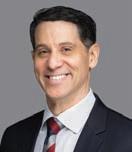
David Bluestone Partner, Intellectual Property T: 312.517.9564 dbluestone@beneschlaw.com

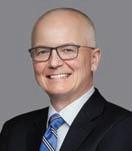
Charles McMahon Partner, Intellectual Property T: 872.302.6466 cmcmahon@beneschlaw.com


Laura Schaefer Partner, Intellectual Property T: 312.212.4973 lschaefer@beneschlaw.com beneschlaw.com
Here are the fastest-growing companies in the Chicago area this year
Organic growth, acquisitions and expansion: Those were some of the factors behind the tremendous growth of the companies on Crain's 2024 Fast 50.
This year's winners saw fiveyear median revenue growth of an impressive 505% and an average revenue increase of 2,375%, driven by the enormous growers topping our list. Logistics, construction and consumer service sectors lead the way, with six companies apiece.
For the past two years, the Fast 50 ranking has been dominated by startup logistics companies, and this year is no different, proving Chicago remains a significant industry hub. The logistics firms on the list generated $3.3 billion in revenue last year and averaged a 645% increase in revenue over the past five years. While Chicago's construction firms experienced disruptions during COVID-19, this year's winners prove they're busy putting the pandemic behind them. The construction companies on our list made $3.5 billion in combined 2023 revenue and averaged a 618% increase in reve-
By | Sophie Rodgersnue since 2018.
Half of the consumer service businesses that made the Fast 50 are leading cannabis companies: Verano, Cresco Labs and Green Thumb Industries — the trio's third consecutive year on the list.
This year's Fast 50 includes 18 companies not featured in last year's ranking, with five newcomers making the top 10: 1440 Media, Kin Insurance, Ashling Partners, Rush Street Interactive and E78 Partners.
Together, these 50 winners generated nearly $20 billion in 2023 revenue and employed more than 11,000 local workers, showcasing their impact on Chicago's economy.
Read on for our full ranking of Chicago's fastest-growing companies, learn more about the five firms that rose to the top and check out Crain's exclusive data on each company on the list.
Missed your chance to apply for Crain's 2024 Fast 50? To ensure your company submits on time next year, contact Crain's data and research analyst Sophie Rodgers at sophie.rodgers@crain.com.

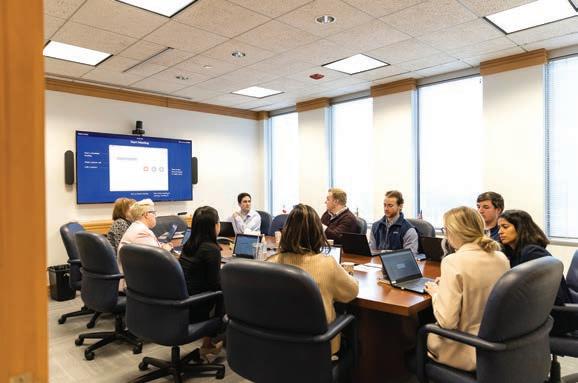




5-year growth: 38,655.6%
Company description: Digital media | Location: Chicago | Year founded: 2017 2023 revenue: $16.0 million | Local employees: 5 | Total employees: 15 | Profitable? Yes
1440 Media is making the most of a trend — the popularity of easily digestible news — with a daily newsletter whose mission is "to share fact-focused information."
Named for the year Johannes Gutenberg invented the printing press, 1440 Media targets C-level executives and those in decisionmaking positions with a "fiveminute read" newsletter that currently counts more than 3.5 million subscribers.
"We had the concept, 'I wish I could get smarter every morning.'
And then we said, 'OK, what's the
“We had the concept, ‘I wish I could get smarter every morning.’ ”
CEO Tim Huelskamp
best way to deliver that?' " says CEO Tim Huelskamp. The newsletter is put together daily, much like a traditional newspaper, says Huelskamp, adding that the company's five-person editorial team scouts various sites, platforms and
5-year growth: 13,294.6%
publications to create the content.
1440 Media got its start being circulated among friends and family members and slowly grew to a nationwide audience. That pace has been intentional: Growth continues as the company, which gets its revenue from advertising, keeps its focus on not making the mistake of growing too quickly.
"We're going to slow down a little bit and think more long term and build a profitable business model," says Huelskamp. "It allows us to control our own destiny."
Corli JayCompany description: Generic pharmaceuticals and fertility distribution | Location: Chicago Year founded: 2016 | 2023 revenue: $230.9 million | Local employees: 75 | Total employees: 90
Profitable? Yes
Meitheal Pharmaceuticals takes its name from an Irish word that means a team of people working together for a common cause, explains John Spilman, vice president of corporate strategy at the Chicago firm. "Kind of in that meitheal spirit, we're working together on our cause to bring sustainability into the U.S. market with these drugs."
Bringing more products to market is how Meitheal Pharmaceuticals finds success. The company is on the Fast 50 list for the second year in a row, this time by expanding into biosimilars — drugs highly similar to biologic FDA-approved medicines — which have been slow to take off in the U.S. Spilman says the company ex-
pects to add 13 more products this year, growing to nearly 70 by the end of 2024. In addition to biosimilars, the company is also expanding into biologics, drugs that are the first to go to market to target a specific disease. As Meitheal grows, it expects to become more visible within the health care sector.
Corli Jay


5-year growth: 9,518.5%
Company description: Homeowners insurance startup Location: Chicago | Year founded: 2016 2023 revenue: $104.4 million | Local employees: 138 | Total employees: 604 | Profitable? Yes
Serving areas deeply impacted by climate change is the model for home insurance provider Kin Insurance. Initially insuring homes in Florida, Kin now services homes in nine states including Louisiana, South Carolina and Virginia.
Launching a new home insurance company is difficult, says co-founder and CEO Sean Harper, as the space is full of legacy busi-
5-year growth: 8,107.1%
nesses with brand recognition. However, the success of Kin's directto-consumer model makes it an outlier within the industry. "(Natural disasters) are happening more and more because of global warming. That's just a fact. Our ability to tell the differences between how these homes are built makes a huge difference," he says.
Kin uses its technology to pro-
vide pricing based on the characteristics of each home. The company also boasts a member-owned model. With more than 160,000 policies to date, Kin's accomplishments are linked to serving overlooked markets. The company added Georgia and Texas this year and expects revenue growth of more than 50% next year.
Corli JayCompany description: Intelligent automation consulting | Location: Chicago | Year founded: 2017 2023 revenue: $28.5 million | Local employees: 23 | Total employees: 183 | Profitable? No
Artificial intelligence and automation have become buzzwords that fill some with fear as they imagine the worst. Ashling Partners aims to put those fears to rest by showing that integrating AI and automation within any industry can reduce costs while increasing productivity.
Ashling co-founders and CEOs Don Sweeney and Marshall Sied
5-year growth: 7,570.9%
say the rate at which technology is growing has reached a point that companies can't ignore. The Chicago firm provides streamlined operations to help keep data insourced and erase tedious tasks that have prevented maximum performance for employees.
Working with Fortune 500 and Global 2000 companies, Ashling aims to make more room for busi-
nesses to focus on what makes them unique instead of wasting time on backroom operations.
"This is very directly relatable to tangible business outcomes," says Sweeney.
Ashling expects a growth rate between 15% and 25% for 2024 and predicts profitability during the second half of the year.
Company description: Financial investment research | Location: Chicago | Year founded: 2015 2023 revenue: $105.1 million | Local employees: 300 | Total employees: 580 | Profitable? No
Tegus landed in our Fast 50 top five again this year as it continued to grow by creating tools for its clients. After acquiring Canada-based leading financial models provider Canalyst in August 2022, the company’s renamed Tegus Financials tool became fully integrated into the company’s operations, said Chief Financial Officer Bob Casey.
And on June 11, Tegus announced it is the one being acquired — by its
largest competitor, New York-based AlphaSense, for nearly $1 billion.
Prior to the deal, Tegus introduced an all-in-one platform that condensed its product lines into one destination. The new platform, implemented in February, created a lower price point for its clients, which helped fuel the company’s growth. Tegus also integrated a new AI search function called AskTegus allowing customers to get quick in-
sights into public and private companies within the set of proprietary qualitative and financial data.
The company expanded its European operations and worked with 19 of the 20 largest private-equity firms in the world, said Casey.
“We’ve always been a business that has invested in growth and focused on how we build the winning product,” he said.
Corli Jay
353 N Clark Street, Suite 2775, Chicago, IL 60654
888-537-1080 themathergroup.com
Since its founding in 2011, The Mather Group (TMG) has been focused on empowering people to navigate life’s journey with confidence and peace of mind. That mission has remained steadfast for TMG, which is one of the fastest-growing, independent, fee-only registered investment advisory firms in the country today. This expansion has landed TMG on Crain’s Fast 50 list of Chicago’s fastest-growing companies for the fourth consecutive year.
When TMG was founded by the late Stewart Mather, it began with $150 million in assets under management. Today, TMG boasts a network of 15 offices nationwide and manages just under $14 billion in combined assets.
Since 2021, TMG has completed 14 acquisitions and continues to build on this strong momentum. Its current leadership attributes its growth to a focus on delivering service and value to the company’s most valuable assets — its clients — and to the investment in its own people, culture and technology that make it all run.
“What really sets us apart in the market and makes our firm special is our comprehensive service model,” said Jennifer des Groseilliers, CEO of TMG. “This includes not only indepth financial planning, but also investment management, tax strategy and compliance, and estate planning.”
TMG also offers several other services, such as philanthropic planning, Medicare and Social Security planning, risk management and family office services. Their team-based service model puts the wealth adviser at the middle of the relationship, bringing in TMG’s specialists and various resources as needed to ensure that everybody works together toward a common goal. “You don’t get one adviser, you get The Mather Group,” des Groseilliers said.
Transparency, simplicity, service are mainstays
TMG was founded as a fee-only fiduciary advice model. Its financial professionals do not hold brokerage licenses, earn commissions, or get compensated for selling products. In other words, there is no incentivizing employees at the client’s expense.
“We’re bound by our ethical responsibility, decision-making and practices to make sure we support our clients and their best interests,” des Groseilliers said.
“All of our financial advisors are extremely experienced professionals with diverse backgrounds, which include CFPs, CPAs, CFAs, JDs and MBAs,” des Groseilliers said. “These are all highly credentialed and vetted professionals, which ensures that we are serving our clients with the highest fiduciary standards.”
The firm aims to minimize costs wherever possible and to provide complete transparency about its fees, which are outlined in the firm’s public disclosure documents.
“We have one comprehensive fee, with the goal of making it simple for our clients to understand without a need to revisit on a frequent basis” said Ryan Wickert, Chief Financial Officer at TMG.
“It’s a set-it-and-forget-it approach. When you come to us, our aim is to simplify your financial life and give you a roadmap for the future while we quarterback all of it. We want our clients spending time with family and friends and pursuing other interests. Let us handle your financial well-being.”
Tech-forward approach streamlines workflows
In the last year, TMG has focused on initiatives related to data science and machine learning in order to support strategic decisions with data-driven insights, according to Kristen Oziemkowski, Chief Operating Officer at TMG.
While all of this work is performed through the lens of security, tight controls and governance, the ultimate goal is to enhance the client experience and make sure that TMG’s employees are driving value with the clients at the center, Oziemkowski said.
TMG also puts a heavy emphasis on its workflows and processes to not only improve the client experience, but really ensure that they are regulatory compliant while supporting scalability, productivity, and efficiency across the firm.
“Our central tech stack is probably best in breed in the industry, but we also spend a lot of time refining our workflows, looking at our processes, making changes and tweaks that impact the productivity of our functional teams and the day-to-day operations of the firm,” said Oziemkowski. “We’re constantly reviewing our tech roadmap because we want to make sure we’re prioritizing and focusing on the right things across the firm.”
TMG’s formula for growth
TMG’s tech-forward approach and robust operational infrastructure have been a draw for some of the newly acquired firms under its umbrella.
“We’ve been impressed with TMG’s focus on streamlining workflows and automating certain processes, which can really enhance team collaboration, reduce errors and ultimately improve the client experience,” said Tim Grout, Founder of Clear Perspectives Financial Planning LLC, which was acquired by TMG last year.
Clear Perspectives is one of several acquisitions the firm has made in the last few years. TMG does not make acquisitions lightly, but rather relies on a proprietary scoring system that looks at roughly 30 different
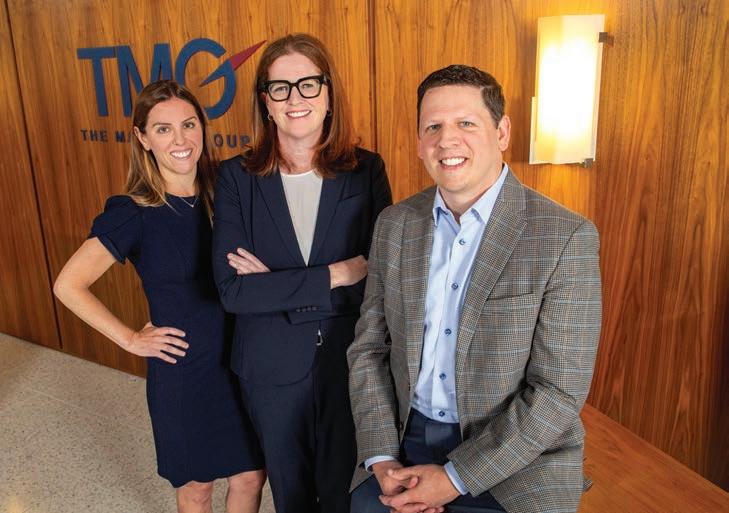
criteria for a deal. “We’re not simply going to acquire a firm for the sake of acquiring a firm,” Wickert said. “It must be strategic for us— either due to acquiring talent, entering a new region, expanding our capabilities, or helping accelerate growth for a firm. Ultimately, we want an aligned partnership.”
People and culture drive satisfaction, commitment to client
People and culture have always been at the forefront of TMG’s business, said Oziemkowski, noting that the firm has made some significant investments to that end at the organizational level.
TMG recently hired a Chief Talent Officer, bringing talent acquisition in-house while also focusing on training and development with a new Director of Talent and Development. The firm is currently in the process of hiring a Director of Adviser Growth to further support its advisers and develop and reinforce critical behaviors, knowledge and skill sets for the future.
“We’ve really invested in training, leveraging some of our key industry relationships and partnerships to enhance and develop the skill sets, both soft and technical, and business and financial acumen of our team members to drive that exceptional service to our clients,” Oziemkowski said.
“We believe that happy and empowered employees lead to happy, empowered and loyal clients,” Oziemkowski said.
In addition to being named to Crain’s Fast 50 list, TMG has garnered an impressive array of industry awards and recognition. Most recently, the firm was ranked #47 on Barron’s 2023 list
of Top 100 RIA firms. That marks the fourth year in a row it has earned a place on that list after initially appearing in 80th place. TMG was also recognized by Fortune magazine as one of the 50 Best Small and Medium Workplaces in Financial Services and Insurance.
TMG is a fee-only fiduciary firm serving primarily high-net-worth individuals. TMG’s professionals aim to make their clients’ retirement journey stress-free and rewarding by providing a comprehensive suite of services under one roof. TMG is a federally registered investment adviser under the Investment Advisers Act of 1940, as amended, providing discretionary and non-discretionary investment advice to clients. Headquartered in Chicago, TMG also has offices in and around Atlanta, Austin, Dallas, Houston, Knoxville, Tenn., Morristown, N.J., Nashville, Portland, San Francisco and Seattle.
To learn more, visit www.themathergroup.com.
The Mather Group, LLC (TMG) is registered under the Investment Advisers Act of 1940 as a Registered Investment Adviser with the Securities and Exchange Commission (SEC). Registration as an investment adviser does not imply a certain level of skill or training. For a detailed discussion of TMG and its investment advisory services and fees, see the firm’s Form ADV on file with the SEC at www.adviserinfo.sec.gov, or on the firm’s website at www. themathergroup.com. The opinions expressed, and material provided are for general information and should not be considered a solicitation for the purchase or sale of any security. The information and data in this communication does not constitute legal, tax, accounting, investment, or other professional advice. Investing involves some level of risk. Past performance does not guarantee future results. TMG paid a fee for this sponsored content.









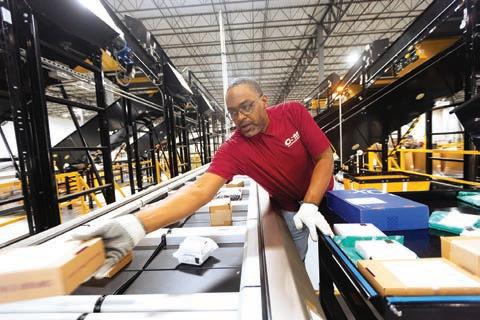




The RTA Transit Benefit Fare Program allows your employees to set aside pre-tax income for parking and transit fares on CTA, Metra, and Pace. Employers can save money on payroll taxes and comply with the new Transportation Benefits Program Act by signing up today at mytransitbenefit.com.
Use the promo code Crains24 to get the first month of fees waived when you sign up by 9/30/24.
Methodology: Working with accounting rm Plante Moran, which examined nancial documents provided by the applicants for 2018 through 2023, we had the following Fast 50 ground rules:
◗ We only considered companies headquartered in the seven-county Chicago area and founded on or before Dec. 31, 2017.
◗ We excluded franchisees, regulated banks, utilities, real estate developers, real estate

investment trusts and some holding companies, such as those that primarily buy or sell other companies/large assets.
◗ Small companies — those reporting less than $15 million in 2023 revenue — were likewise not considered.
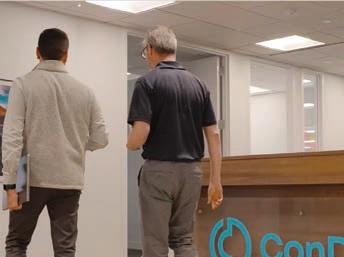

◗ We disquali ed companies that had more than one drop in revenue from 2018 to 2023.


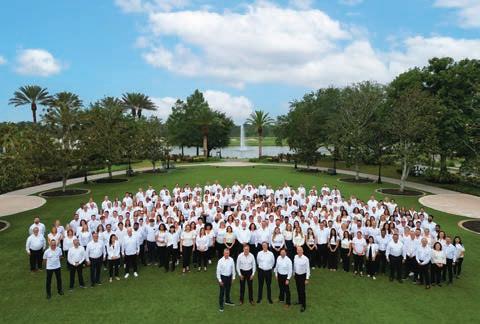
and help them get to where they want to go.”
Take for example HSAs. In many cases, according to DiSimone, HSA funds can be invested like 401(k)s and IRAs, allowing the money to grow at a faster rate than it would in a traditional savings account.
By Judy StringerHigh inflation, escalating health care costs, stagnant wages, income inequity, entitlement uncertainty, the demise of pensions, the rise of student debt – there is plenty of blame to go around when it comes to the looming retirement savings crisis.
According to Boston College’s most recent National Retirement Risk Index, nearly half – a whopping 47% – of working-age households are at risk of not having enough savings to maintain their living standards in retirement.
“It’s a complicated problem,” said Inspira Financial COO Mike DiSimone. But one, he explains, Inspira is uniquely positioned to help individuals and businesses tackle.
“Whether it’s making sure you can address your healthcare needs now through the future or funding your

retirement, there are many solutions that address both while building financial wellness and helping people get closer to their goals,” he said. “Inspira brings those solutions and helps break them down –simplifying the complex into easy, actionable steps.”
Inspira Financial began as Oak Brook-based Millennium Trust Company, a 24-year-old IRA custodian and the industry’s leading
independent automatic rollover IRA provider that has diversified its role in the benefits space with a series of recent acquisitions.
Along with the 2022 purchase of PayFlex – a leading provider of health savings accounts (HSAs), flexible spending accounts, and health reimbursement arrangements – Millennium Trust acquired Benefit Resource, LLC., certain consumer directed benefits assets from Pro-Flex Administrators, and the Maestro Health consumer directed benefits business from third-party administration technology company Marpai in 2023. This growth has enhanced its reach into HSAs, emergency savings funds (ESFs), commuter benefit plans, and other employer-offered benefits.
DiSimone said the acquisitions have “added scale” to Inspira’s existing retirement and wealth business line while allowing the company “to meet our customers where they are
“HSAs also offer a triple tax advantage – contributions are tax-deductible, earnings grow taxfree, and withdrawals are tax-free when used for qualified health care expenses,” he said, adding that Inspira studies have found that HSAs have the potential to help accountholders save over $1 million for health care expenses, depending on certain variables.
Yet, many young professionals, who stand to benefit the most due to longer investment horizons, aren’t fully utilizing these impactful savings vehicles. Inspira’s research suggests nearly one-third of employees under 30 contribute nothing to their HSA annually, and only 14% contribute over $3,000 per year.
Meanwhile, participation in HSAs and other retirement and benefits programs also yields a mutually beneficial opportunity for employers in terms of “higher employee engagement, greater retention, recruitment and productivity outcomes, and overall business growth,” DiSimone said.
“So, it’s important to ensure organizations and individuals understand all of their opportunities,” he said.
ESFs are another example of an oftunderused savings tool – one that has the potential to reduce financial stress and thereby boost employee productivity. A recent Inspira report indicates that 80% of employers agreed that employees’ financial issues impede their job performance.
“The fact is many people have faced a challenging economy that has depleted their savings,” DiSimone said. “Yet, most current benefits offerings do not provide employees with an avenue to pay for an unexpected car repair or sudden family emergency.”
According to DiSimone, Inspira currently holds $62 billion in assets under custody and does not take lightly its distinct role in the financial wellness journey of its 7.7 million individual client accounts.

J.P. Morgan Private Bank, Chicago
Bruce Trant has joined J.P. Morgan Private Bank in Chicago as Executive Director and Banker. Bruce advises highly wealthy individuals in Chicago and across the Midwest including families, financial professionals and centers of influence who seek the brand reputation and intellectual strength of an industry powerhouse. He is adept at learning each individual’s priorities and goals to lay out a plan for pursuing the future they envision. Bruce joins the firm from Cantor Fitzgerald.
Lakeshore Financial Group, Chicago
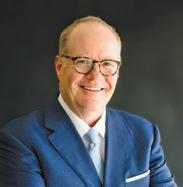
Lakeshore Financial Group is excited to announce Mike Faulhaber as our new Managing Director, leading our expansion into the Rocky Mountains region. With nearly twenty years of experience at Mutual of Omaha and Northwestern Mutual, Mike brings extensive expertise in financial planning for individuals, families, and businesses. Mike Faulhaber is a Registered Representative and Investment Adviser Representative of Equity Services, Inc. www.lsfgchi.com for details. TC142440(0624)1

Oncourse Home Solutions, Naperville
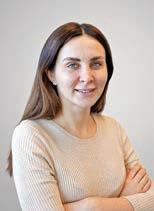
Benesch, Chicago
The Inland Real Estate Group, LLC, Oak Brook
Cassie Hrtanek was appointed Chief Operating Officer for Inland, one of the nation’s largest commercial real estate and finance groups. Ms. Hrtanek is responsible for human resources, information technology, property tax, risk management, communications, marketing, and purchasing. “Cassie’s invaluable experience, dedication, proven track record, leadership and profound understanding of Inland and its member companies make her a natural fit for the role,” said Tony Chereso, CEO and President of Inland.
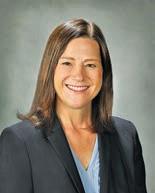

Byline Bank, Chicago
Byline Bank welcomes Karmen Conrad as SVP, Head of Marketing. She oversees integrated marketing strategy and communications, including customer acquisition and campaign development, for all of Byline’s consumer and commercial lines of business. Previously, Karmen led marketing for U.S. deposits and private wealth at BMO Bank. Before that, she spent 20 years in consumer packaged goods, leading brand management for iconic names like Oreo, Doritos and Jimmy Dean. Byline Bank is a Member of FDIC.


Byline Bank, Chicago
Byline Bank welcomes Karolina PawlakDaracz as SVP, BSA/ AML & Fraud Director.

As a Certified AntiMoney Laundering Specialist, Karolina brings 17 years of regulatory compliance experience in the financial services and tech industries, most recently serving as the Head of Anti-Money Laundering at Meta. Karolina holds Master’s degrees in law and international relations and affairs from the University of Warsaw.


Wintrust Financial Corporation, Rosemont
Wintrust Financial Corp., a financial services holding company based in Rosemont, Illinois, with more than 170 locations across Illinois, Indiana, and Wisconsin, is pleased to announce two promotions. Matthew Hammer was promoted to SVP, Division Manager, Commercial Banking at Village Bank & Trust, N.A. Matthew joined Wintrust in 2013.


Caterina Aiello was promoted to SVP, Head of Retail, Retail Branch Management at Schaumburg Bank & Trust Company, N.A. Caterina will celebrate 21 years at Wintrust in August.

CAC Specialty, Chicago
CAC Specialty, a leading insurance brokerage and advisor, has appointed Rob Livingston as Executive Vice President. Bringing three decades of industry experience, Livingston will enhance client service efforts and drive business development. His deep understanding of client needs and proven track record in delivering tailored risk management solutions, with a focus on Cyber, D&O, E&O and overall balance sheet protection, will strengthen CAC Specialty’s capabilities in these key sectors.

Zisan Tekin, Oncourse Home Solutions’ SVP Partnership Development & Expansion, spearheads initiatives to maintain and grow OHS’s relationships with key water & utility partners, along with over 1M customers. OHS protects customers’ homes through various home protection products and services. Zisan’s experience in companies like Angi, Handy, Bain & Co., BNP Paribas extends across go to market, sales, operations, & product functions. Zisan earned her MBA from the Wharton School & BA from METU.

Coplan + Crane, Oak Park
Coplan + Crane welcomes David A. Axelrod as Of Counsel. With over 41 years of trial experience and more than $100 million secured in compensation for his clients, David specializes in medical malpractice, catastrophic injury, and commercial disputes. His record includes a $31.35 million verdict in Marston v. Walgreen Company and a $10 million medical malpractice settlement. David has long admired Coplan + Crane’s dedication clients and is excited to join the firm.

Charles M. McMahon has joined Benesch as a Partner in the firm’s Intellectual Property Practice Group. He is a first-chair litigator who focuses his practice on patent, trademark, copyright, trade secret, and unfair competition law. He has represented domestic and multinational clients in more than a dozen federal district courts and before the Patent and Trademark Office, the Patent Trial and Appeal Board (PTAB), the International Trade Commission (ITC), the Court of Appeals for the Federal Circuit, and the Supreme Court. Andrew J. Meyer has joined Benesch as an Associate in the firm’s Corporate & Securities Practice Group. He focuses his practice on general corporate and transactional law.

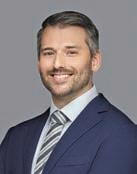
Meyer
Illinois Humanities, Chicago
Cramer-Krasselt, Chicago
Cramer-Krasselt (C-K), one of the nation’s largest independent advertising agencies, has hired Kevin Drew Davis as the new Executive Creative Director. This hire continues C-K’s expansion of its leadership over the last 15 months. Davis is a true digital pioneer and brings with him extensive experience producing award-winning work for clients like BMW, McDonald’s, Nike, Volkswagen and more. He will lead creative work across C-K’s existing clients, including Porsche and Tropicana.


Illinois Humanities is proud to welcome Myriam Del Angel as a new board member. She is the Vice President of HR for North America at Randstad Sourceright and brings over twenty years of experience in HR and Equity, Diversity, and Inclusion. Myriam is a published author of “Latinas in Corporate: Overcoming Cultural Obstacles While Juggling a Career and a Family” and a co-author of “Latinas Rising Up in HR, Volume 1.”

Illinois Humanities, Chicago
Illinois Humanities is pleased to announce Aarón Díaz Bianco, JD/CFA as a new board member. Aarón manages Sonora Investment Partnership and boasts an extensive background in finance and law, with academic credentials from Princeton, the University of Chicago, and UC Berkeley Law. His prior roles include attorney and investment analyst. Aarón is a member of American Mensa and actively contributes to several advisory boards.


NON-PROFIT
Illinois Humanities, Chicago
Illinois Humanities is excited to announce Nakea West as a new board member. Nakea is the Chief Equity and Diversity Officer at IFF, where she leads efforts to cultivate an inclusive and antiracist organizational culture. Her experience extends to managing resource development and strategic fundraising for notable civil rights organizations. Nakea holds a political science degree from The University of Chicago.


NON-PROFIT
Uniting Voices, Chicago

Amy Alvarado Tinucci has been promoted to Chief Operating Officer at Uniting Voices Chicago (formerly Chicago Children’s Choir). With 15 years in philanthropy, Amy has led the development team at Uniting Voices to secure the largest contribution in the organization’s nearly 70-year history. Previously at Lyric Opera of Chicago, she excelled in building relationships and driving fundraising efficiency. Amy is a Certified Fundraising Executive (CFRE), and serves on the AFP Chicago Board.

and board member.
“It’s a totally new company starting from scratch, but (we) have the Foxtrot name and the (intellectual property) and a bunch of our locations,” LaVitola said. “We’re like a new startup again.”
Several weeks ago, Foxtrot’s outlook was not so hopeful. Employees of the Chicago-based company showed up at work on April 23 and in some locations were sent home before 10 a.m. By midday, Foxtrot’s parent company Outfox Hospitality confirmed the store’s 33 locations around the country were permanently closing, along with its sister retailer, Dom’s Kitchen & Market, which was the latest venture from grocery veteran Bob Mariano.
The news was shocking, and the fallout was swift. Employees filed several lawsuits alleging Outfox, Dom’s and Foxtrot violated workers’ rights by failing to give them proper notice of impending closures. Suppliers were scrambling to find other stores willing to sell their products and recoup potential losses. Customers — who had watched Foxtrot expand rapidly over the past decade and Dom’s burst onto the scene postpandemic — gathered outside storefronts across the city lamenting the news. Investors were told the same morning Outfox Hospitality was closing.
LaVitola, who had drawn up Foxtrot’s business plan while attending the University of Chicago’s Booth School of Business more than a decade ago, said he was heartbroken, as was his cofounder, Taylor Bloom. LaVitola had gotten hints the company might shut down, but said he was in disbelief.
“I had thought, ‘There’s no way,’ ”
From Page 3
optimizing our resources, supporting our workforce and evolving our strategic business priorities to best support our members and customers,” an HCSC spokeswoman said in a statement to Crain’s on the listing.
HCSC has found takers for some of its space in the tower before. Law firm Baker McKenzie signed on in 2009 to occupy 237,000 square feet across eight floors for its Chicago office, though in recent years the firm has offloaded three of those floors that are now part of the new offering from the building, according to a source familiar with the property. Consulting firm McKinsey moved its Chicago office to the tower in 2012 and has a lease for more than 100,000 square feet that runs through the end of 2027, according to real estate information company CoStar Group.
The available space includes contiguous blocks of offices totaling 97,800 square feet and 65,506 square feet, according to the Cushman flyer.
The brokerage is playing up a space rife with the modern amenities companies crave as they seek
he said. “I just couldn’t believe this would be ending.”
Foxtrot launched online in 2014 and opened its first shop in 2015 on Lake Street in Fulton Market. LaVitola once told Crain’s that was mainly to get around laws that prohibited delivering alcohol from a warehouse. That “cheap, underthe-train-track lease” ended up being a game-changer. Foxtrot rode the wave of Fulton Market’s transformation from a former meatpacking district into one of the city’s trendiest neighborhoods. The business model worked out, too. It used brick-and-mortar locations as fulfillment centers for online orders, which helped it explode.
LaVitola had left his role as Foxtrot’s CEO in early 2023 to become nonexecutive chairman,
pothesized Foxtrot was struggling to reach profitability and needed more capital to continue its aggressive expansion. Foxtrot had raised more than $160 million in funding before it joined forces with Dom’s. But with elevated interest rates, it has now become harder to raise capital.
LaVitola confirmed Foxtrot was not profitable overall before the merger, though certain locations were.
“The company had an overhead that was sized for really, really massive growth,” he said. “(We’re in) a bull market and funding conditions changed. Markets changed.”
After news of the closures spread, investors started reaching out to LaVitola to see what they
“This might be a story of a brand that flew too close to the sun and fell. But there’s every reason to think they can come back from that.”
Tim Calkins, clinical professor of marketing at Northwestern University’s Kellogg School of Management
but after the company merged with Dom’s later that year, he became an adviser. He described himself as being on the periphery of Foxtrot’s newly formed parent company, Outfox. He said he was not privy to the financial status of the company after the all-stock merger and declined to discuss financial details.
“I still have my own questions as to what happened,” LaVitola said. “I think everyone was really surprised that a brand that was this strong with customers and this strong with vendors . . . could just fold up.”
Experts have told Crain’s shutting down a company and declaring bankruptcy so soon after a merger is unusual. They also hy-
offices that help encourage employees to show up. Such top-tier, or Class A, office buildings downtown have outperformed the rest of the market over the past few years and have a substantially lower vacancy rate than the market average — 20.6% as of the end of the first quarter, according to CBRE data.
HCSC also has no debt on the building. Owning office buildings outright is now touted as a competitive advantage while many landlords are hamstrung in leasing efforts by maturing loans or lenders unwilling to back new concessions for tenants.
Still, it’s a difficult time to land any new tenants. While the tower comes with prime views of Lake Michigan and downtown parks, the location far from commuter trains could make it a difficult sell for many office users. HCSC also has plenty of competition in the East Loop from neighbors Aon Center and Prudential Plaza. The owners of both of those towers are especially motivated to shore up their rent rolls after recently getting more time from their lenders to pay off their mortgages.
HCSC has employees at seven offices across the Chicago area, including the Randolph Street
ny. Included in the sale were goods, equipment, inventory and Foxtrot’s intellectual property.
The sale also included Dom’s assets, for which the bidding started at $200,000, but no bids were placed and the sale concluded.
Five days later, Outfox filed for Chapter 7 in federal bankruptcy court in Delaware.
Previously, Foxtrot had 15 stores in Chicago; 10 in the Washington, D.C., area; and eight in Texas. Almost all those leases had expired by the time Outfox filed for bankruptcy, LaVitola said. But the new team has gotten a lot of them back.
The stores that reopen will look largely the same to consumers. The layout isn’t changing, and the merchandising will be similar. LaVitola and the team at the new Foxtrot are working to repair relationships with vendors and employees. LaVitola said he’s hoping for familiar faces when the stores reopen and familiar merchandise on the shelves.
could do to help get the stores back open, he said. One of those investors was Magruder. He had worked previously as an investor in distressed companies, and Foxtrot’s abrupt closure didn’t make sense to him. Magruder started tapping into his network and decided Foxtrot was worth saving.
“I quickly realized ... there’s still a business, there’s still value to be had,” he said. “Ultimately, the business made sense.”
JPMorgan Chase held the auction for Foxtrot’s assets on May 10, and Further Point placed the winning bid. It paid $2.2 million and a 5% stake in the successor compa-
headquarters. Its Blue Cross & Blue Shield of Illinois insurance plan — Illinois’ largest health insurer — has expanded into local neighborhoods in recent years with locations in Pilsen, Morgan Park, Pullman and South Lawndale. HCSC also has suburban Blue Cross offices in Downers Grove and Naperville.
HCSC saw its member base grow by 2 million between 2018 and 2022 to 17.7 million enrollees across its five insurance plans, with BCBSIL serving about 9 million of them, according to the company’s most recent annual report. HCSC also owns and operates insurance plans in Montana, New Mexico, Oklahoma and Texas.
The building at 300 E. Randolph St. was originally 30 stories when it was completed in 1997. The tower was engineered to allow for a vertical expansion, which BCBSIL began in 2007. The current 2.3 million-square-foot building has gained exposure since then as a makeshift illuminated billboard at night, often displaying messages with lights through windows on its south-facing facade.
Cushman & Wakefield brokers Michael Sessa and Dan Maslauski are marketing the 300 E. Randolph space on behalf of HCSC.
experience will be revamped, LaVitola said.
Foxtrot plans to strengthen its core in the next year or two. LaVitola said they know which stores were profitable and will focus efforts there. Growth will look like one or two new stores a year instead of 10 or 15. There are no plans to reopen any D.C. locations. Instead, Foxtrot plans to add density in its existing markets. For example, there are no Foxtrot locations in Chicago’s suburbs, where LaVitola sees potential.
“We wanted to set ourselves up for success and really doing that in the markets we know best, which are our home markets in Chicago and Texas,” he said. “There’s still a lot of growth ahead. . . .We’re still very ambitious and have big goals, but we can now do it in a more measured way.”
The corporate team will be smaller, and Foxtrot will not reestablish its Fulton Market office at 167 N. Green St. — though LaVitola said the store there could reopen.
Foxtrot’s private-label products, where it had invested heavily in recent years, will also be back on shelves, as that intellectual property was included in the asset sale. So, too, was the technology that powers Foxtrot’s online ordering capabilities.
Foxtrot plans to double down on featuring small and local makers. The stores will still sell coffee, smoothies, wine and cheese, and breakfast tacos will still be “front and center,” but the food

Magruder plans to focus on making sure there’s financial discipline at the corporate level and to prioritize operating the stores rather than an unsustainable growth strategy. He has raised the capital needed to reopen the stores but declined to disclose how much.
Customers will likely be thrilled to see Foxtrot back in business, but it will face challenges, said Tim Calkins, clinical professor of marketing at Northwestern University’s Kellogg School of Management. The chain’s shutdown was so abrupt, suppliers and employees will want to know what Foxtrot will do differently this time to stay in business.
“This might be a story of a brand that flew too close to the sun and fell,” he said. “But there’s every reason to think they can come back from that.”

.www.chicagobusiness.com/classi eds
seeks inChicago,ILtodefinetheproductdevelopmentroadmapfor Braviant.Domestictravelrequiredupto10%.Telecommutingpermitted.Apply@ www.jobpostingtoday.comRef#50034
Createdocumentationinclreqs, userstories,acceptancecriteria,feature descriptionPowerPointdecks,userguides, processflows,wireframes,&newsletters.May workremotelyfromanywhereintheUS.
Bachelor’sdeg(orfrgnequiv)inCSorrltd; 2yrsofexpasaDvlpr,S/wEngorrltd.
Emailresumesto claudine.volkening@rsmus.com,Ref#1526


SchillerParklocation.Sendresumeto: 10050Ivanhoe Ave,SchillerPark,IL,60176,Attn:J.Lakerdas.
Homebuyers filed an appeal of home sellers’ big legal settlement with major real estate brokerages over agent commissions, the buyers’ second attempt in less than a month to derail it.
Attorneys for the homebuyers say the sellers’ settlement, if approved, could be misconstrued to also close down claims made by buyers in their own separate suits. They made the same argument in an early May request for an injunction against the settlement, which a judge rejected.
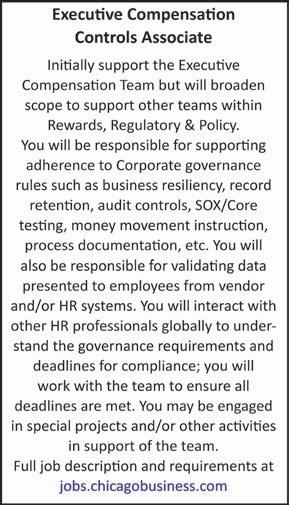

Crain’s Career Center
Both groups have sued big real estate brokerages and the National Association of Realtors over longheld sales commission standards that they say amount to collusion by the industry to keep agents’ commissions high. It’s based on the cooperative agreement where the sellers pay a commission to their agent, who then splits it with the buyers’ agent, each agent customarily getting 2.5% to 3%.
Without the sharing agreement, consumer groups and attorneys argue, agents could compete by cutting their commissions.
From Page 1
or falling into foreclosure are forcing suburban municipalities to seek ways to revitalize those properties and restore foot traffic that has been lost to the remote work movement.
Plans for some suburban office properties have set off fierce community debates about quality-oflife concerns, particularly as warehouse developers have clamored for office sites as industrial redevelopment candidates. Local residents blocked a proposed redevelopment of the Baxter International headquarters in Deerfield. The former Allstate corporate campus in Northbrook, meanwhile, was razed to make way for a sprawling logistics park.
The Lincolnshire property is hitting the market just as officials in the suburb are close to finalizing a new comprehensive plan, a guide for future development in the community. Spurred by the officeto-industrial trend, village officials over the past two years have sought to clearly define what they want — and don’t want — for prominent office properties that are poised to be redeveloped.
At 4 Overlook Point, that mix of potential uses doesn’t include industrial warehouses, said village of Lincolnshire Planning and Development Manager Tonya Zozulya. She expects Aon to vacate the property with the expiration of its lease and said a draft version of the comprehensive plan envisions a mix of uses on the Aon campus such as
The sellers’ settlement has been in the works since October, when the jury in a Kansas City federal court found brokerages and the Chicago-based NAR guilty of conspiring through their business practices to hang onto a commission structure that stifles competition.
On May 31, attorneys at law firm Korein Tillery’s Chicago office, representing buyers, filed a motion in the U.S. Court of Appeals in the Eighth Circuit to halt final approval of the sellers’ settlement.
Depending on how the court responds, the appeal may delay final approval of the $626 million settlement, of which the NAR has agreed to pay $418 million, Coldwell Banker parent Anywhere $83 million, Keller Williams $70 million and Re/Max $55 million.
Korein Tillery attorneys filed the appeal on behalf of James Mullis, a Nevadan who is a plaintiff in the buyers’ suit and a member of the class of sellers covered by the sellers’ suit. George Zelcs, a Korein Tillery partner leading the motion for an appeal, declined to comment.
In previous filings, the attorneys for the buyers expressly requested
housing, restaurants and entertainment.
“All those things would position the redevelopment of (Lincolnshire Corporate Center) in a positive direction,” Zozulya said. Industrial projects in Lincolnshire, she said, are reserved for an area west of the corporate center where such buildings are already located today.
CBRE marketing materials align with that vision for 4 Overlook Point, which today includes a pair of V-shaped, six-story office buildings totaling 349,000 square feet apiece and connected by an 80,000-square-foot single story connector building.
Completed in 1998, the campus also features a separate three-story, 85,000-square-foot office building and three large parking garages that combine with adjacent surface parking lots to provide more than 3,100 parking spaces.
The brokerage plays up possible uses that the village would likely support such as a single-family housing, apartments, a data center or commercial uses like a grocery store, restaurants, a car dealership and entertainment uses. The property is zoned for office use today, but Zozulya said the comprehensive plan draft contemplates “integrated mixed uses” for the site.
The sale price for 4 Overlook Point will depend on what kind of redevelopment plan a buyer would pursue at the property. But it will likely be a fraction of the $148 million that Phoenix-based Vereit paid for the property in 2012, when it was just kicking off a new 12-year Aon lease. Realty Income acquired the building through its 2021 merger with Vereit.
A Realty Income spokesman did
the sellers’ case settlement clearly say it covers only sellers, to no avail. They argue buyers have a different set of claims against the real estate industry. That’s in part because agents for buyers would be more likely to compete for business by taking lower commissions — because they don’t incur costs for things like photography and advertising that selling agents do. If the commission structure quashes competition, buyers have more to lose and should be permitted to pursue their own claims, the attorneys have argued. They claim brokerages will use the sellers’ settlement, known as the Sitzer-Burnett case, to render buyers’ cases, the biggest of which are called Bratton, shut.
The judge overseeing the settlement can either hold up the settlement until the appeals court decides on the merit of the appeal, a legal industry representative who asked not to be identified told Crain’s, or decide to go ahead and approve.
The more common route, the source said, is to wait for the motion for an appeal to be decided.
not respond to a request for comment.
A spokesman for Aon did not immediately provide a comment on its plans for offices in the northern suburbs. The company is said to have been touring the suburban market for new office space closer to about 50,000 square feet, according to people familiar with the search.
One big user of the Aon space already made its big office move: Publicly traded benefits administration company Alight Solutions, which was born out of the former Aon Hewitt unit that was previously housed at 4 Overlook Point, relocated and drastically shrunk its headquarters to just 16,000 square feet on the top floor of BMO Tower at 320 S. Canal St. downtown. The company had occupied close to 200,000 square feet at 4 Overlook Point, according to JLL data.
Finding new uses for 4 Overlook Point is crucial for the village of Lincolnshire because of its reliance on tax revenue tied to food and beverage sales and hotel bookings. Those two sources account for close to 20% of the village’s annual budget and have historically been boosted by hundreds of employees in the building visiting local restaurants and hosting corporate clients.
A draft of the village’s proposed comprehensive plan calls Lincolnshire Corporate Center the community’s “economic engine over the last several decades” and frames its revitalization as a “once-in-a-generation opportunity to transform the future of Lincolnshire.”
CBRE’s Matt Ishikawa, Tom Svoboda and Mike Smith are marketing 4 Overlook Point for sale.







Taken together, the two made up almost half of the near-$2 billion the state took in from all forms of wagering last fiscal year, which also includes growing revenues from the state lottery and casinos.
Organized labor, a top funder and ally for Democrats, balked at the plan to deposit the extra tax dollars from sportsbooks into GRF instead of dedicating it to infrastructure projects, where current sports betting revenues are directed. And major sportsbook operators threatened to stop advertising or even withdraw from the state as the legislature’s scheduled adjournment date drew near.
But Pritzker was undeterred, pointing consistently to East Coast states like New York and three others, which have all implemented tax rates over 50 percent on their online sportsbook operators. Before the tax hike’s passage last month, the governor brushed off opposition, saying the sportsbooks “have made literally tens of millions of dollars from the state of Illinois,” later noting that the major sportsbooks subject to the highest taxes in the new graduated structure “don’t reside in the state of Illinois.”
“Our focus was on asking...companies that can pay more to pay more,” he said after the tax increase’s passage. “And indeed, we kept the tax on sportsbooks lower than the top states in that arena.”
In pushing the tax hikes through the General Assembly, the governor and legislative Democrats are making a bet that sports betting and video gambling companies need Illinois as much — or more — than Illinois needs their tax revenue.
Under the new tax revenue package, sports betting revenues going forward will be split between the state’s General Revenue Fund (58 percent) and Capital Projects Fund (42 percent).
Pritzker’s office predicts the graduated structure will bring in the same $200 million extra for GRF that increasing the flat tax would have.
Sportsbooks’ new tax rates will depend on their annual revenues.
Earnings below $30 million annually will be taxed at 20 percent.
Earnings between $30 million and $50 million annually will be taxed at 25 percent.
Earnings between $50 million and $100 million annually will be taxed at 30 percent.
Earnings between $100 million and $200 million will be taxed at 35 percent.
Earnings above $200 million will be taxed at 40 percent.
The final plan marks an evolution from Pritzker’s February proposal, which sought to increase the state’s current 15 percent tax on sports betting operators to 35 percent.
But not all Democrats were on board with the governor’s idea, with some expressing concerns about overleveraging a nascent industry, which has threatened to
stop advertising or even operating in Illinois if the tax hike is passed.
A nationwide industry group dubbed the Sports Betting Alliance, which represents both big players and emerging sportsbooks, launched a campaign against the tax increase that generated more than 56,000 emails and calls to the governor’s office and lawmakers, according to a representative for the group. Last month, sportsbook giant FanDuel pushed alerts to its Illinois users via its app, urging them to take similar action.
“This tax hike will mean worse products, worse promotions, and inevitably, worse odds for Illinois customers — not to mention provide a massive leg up to dangerous, unregulated and illegal offshore sportsbooks who pay no taxes and adhere to none of Illinois’ sports betting regulations,”
Sports Betting Alliance President Jeremy Kudon said in a statement.
COVID-19 pandemic.
Illinois became the 15th state to legalize sports betting as part of a massive gambling expansion law passed in 2019. Lawmakers, sports enthusiasts and gambling interests had been champing at the bit to legalize sports wagering for a year prior to its passage after a U.S. Supreme Court decision striking down a federal ban on the industry outside of Nevada, which had been grandfathered in.
Though the law that legalized sports betting in Illinois had intended for casinos to get an 18month head start in the sports betting market before big online operators like DraftKings and FanDuel became licensed, those companies got around the law by partnering with downstate casinos to operate their sportsbooks.
They were also helped by Pritzker’s COVID-era suspension of the law’s requirement for in-person registration at casinos, allowing
cent of all wagers in Illinois were made online in the fiscal year that ended in June 2023.
Tax revenues reflect that disparity. Illinois Gaming Board records show tax receipts made from online bets netted the state nearly $399 million in the last four years, compared with just $16 million from in-person bets.
That dynamic is echoed in other states that have legalized both online and in-person betting, meaning it’s most useful to compare states’ online sportsbook markets. Since Illinois launched its market, 21 other states and the District of Columbia have launched their online sports wagering markets.
At the time Illinois’ market launched four years ago, the state’s 15 percent tax rate was on the higher end of those that came before it, but nowhere near the 36 percent rate in Pennsylvania or the 51 percent tax adopted imposed by both Rhode Island and

The sportsbooks contend that they earn only a small amount of every dollar wagered, as the rest is paid out in winnings. From that small amount, they say, everything from payroll to marketing must be paid — including taxes.
Sportsbooks claim taxing them more could backfire as they may decide to spend their marketing dollars in other states, and without special promotions to entice the casual and occasional bettors, those users could drop off entirely.
In House floor debate over the revenue package that contained the sports betting tax hike, state Rep. Will Guzzardi, D-Chicago, said the reach of the sportsbooks was drilled into him while watching the NBA playoffs.
“It seems like every other commercial I see is from one of these sportsbooks, and they’ve got celebrities and they’re buying up all these timeslots,” he said. “I guess I’m hard-pressed to think of DraftKings and FanDuel as small momand-pop Main Street Illinois businesses that are struggling to get by.”
Like in many other states, DraftKings and FanDuel have cornered roughly three-quarters of Illinois’ sports betting market. Their ability to do so was aided by unforeseen circumstances created by the
bettors from hundreds of miles away to start gambling almost as soon as they downloaded a certain sportsbook’s app.
The first bets were placed at Rivers Casino in Des Plaines on March 9, 2020, just days before the COVID-19 pandemic shuttered both professional sports nationwide and gambling activity in Illinois.
Even so, by the end of 2020, Illinois’ overall handle — the amount bettors spent wagering — had launched to fourth among states, and it’s consistently stayed that high ever since.
The industry has generated $415 million in tax revenue for the state in the four years since the market launched, according to the Illinois Gaming Board’s latest available data, which is current through the end of March 2024.
The rate of growth in wagers and the corresponding growth in tax revenue has slowed from its initial explosion, but still grew 23 percent between the third and fourth years of legal sports betting in Illinois.
Online wagering is infinitely more popular than placing bets at a “retail” sportsbook like a casino or pro sports stadium. According to a September report by the Commission on Government Forecasting and Accountability, 98.8 per-
bet in popularity, upending models that were used to arrive at Illinois’ 15 percent tax rate during negotiations five years ago. Parlay bets made up more than 60 percent of all sports wagers made in fiscal year 2023, according to state records.
Because bettors are more likely to lose their parlay bets than straight bets like on the outcome of one game or a point spread, the sportsbooks earn much more from these riskier bets. Sportsbooks also promote parlay bets, often enticing bettors with offers to make the parlays.
Sportsbooks — particularly ones focused on their retail operations — did end up getting a tiny concession in a last-minute amendment before lawmakers OK’d the new tax structure. Revenues made from in-person bets will be differentiated from revenues made from online wagers before they’re taxed, meaning overall revenues will be slightly slower to cross higher tax thresholds in the graduated structure.
State Rep. Bob Rita, D-Blue Island, a lead sponsor of the 2019 law that ushered in sports betting, was not buying the doomsday threats from the sportsbooks.
“Nope,” he told Capitol News Illinois when asked whether he felt the sports betting companies’ complaints had merit.
Instead, Rita said, lawmakers should focus on the number of sportsbook licenses made available under the 2019 law that still haven’t been awarded. He speculated there could be many reasons sports betting companies haven’t tried for the three online-only “master” licenses or six of the seven tied to sports venues.
New Hampshire on online sportsbooks.
But since then, several more states have launched their online markets with tax rates higher than Illinois’ 15 percent, including Delaware at 50 percent and New York with a 51 percent tax on online operators.
Ohio became the first state to hike its sports betting tax last year when Republican Gov. Mike DeWine pushed to double the state’s tax rate from 10 to 20 percent just six months after its market launched, though he insisted it was motivated by concern over sportsbooks’ aggressive advertising, and not a revenue decision. New Jersey lawmakers are also weighing hiking its tax on online operators from 14.25 to 30 percent.
Despite other states taking similar steps to Illinois, the companies threatened to push the nuclear button in the final days of session, with a source close to DraftKings and FanDuel telling Capitol News Illinois that “all options are on the table, including withdrawing from the state.”
But skeptics say the companies are making more from Illinois’ market than they let on, especially as parlay bets — multiple wagers bundled together into one bet — have overtaken any other sort of
Before session ended, a House committee focused on gaming issues convened just such a hearing, in which committee members were told the license fees were far too high. Rita asked those testifying to the panel to identify problems in the current law that allowed the licenses to go unused.
John D’Alessandro, representing the ownership of the Chicago Wolves minor league hockey team, said the organization had mostly stopped pursuing a venuespecific sports betting license because the team would likely never see a return on the $10 million investment in a license fee — especially because bets could only be placed in person or within a roughly five-block radius of the venue.
“It’s very overpriced in the market,” he said of licenses compared with those in other states. “You have a very high fee, you have no online capabilities...the economics don’t make sense.”
Only DraftKings has pursued a venue-specific sportsbook. Last summer, it opened a 17,000-squarefoot space adjacent to Chicago’s Wrigley Field offering bar and restaurant service to customers while it awaited final licensure from the Gaming Board, which came in March.
Illinois’ license fees are some of the highest in the nation. Pennsylvania also charges $10 million for
an initial license fee and New York charges a $25 million fee for online operators, other states charge in the hundreds of thousands, or even have no license fees. New York does not charge land-based sportsbook operators a license fee or charge for renewals, while Illinois charges $1 million every four years for license renewals.
A representative from the state’s Gaming Board testi ed that only one sportsbook has even applied for the $20 million online-only master sports betting license but ended up withdrawing.
Taxes on Illinois’ ever-growing video gambling industry will grow to 35 percent — up from the 34 percent rate it’s been sitting at since 2020.
at extra tax would generate an estimated $35 million next year, according to estimates from Pritzker’s o ce. e $814 million in taxes video gambling terminals generated for the state in the 2023 scal year is part of $4.8 billion the industry has made for state infrastructure projects since the very rst gaming terminals launched in 2012, according to the Illinois Gaming Board.
Upping the tax on video gaming was a last-minute addition to Democrats’ revenue package in recent days; Pritzker had not mentioned any desire to do so earlier this spring.
e 2009 law that legalized video gambling implemented a 30 percent tax on the industry and limited most establishments to ve terminals apiece. But as part of a massive gambling expansion in 2019, the General Assembly upped the tax to 33 percent with an automatic bump to 34 percent in 2020.
In exchange, restaurants, bars and gaming cafes have been allowed to add a sixth terminal, while so-called “large truck stops” were allowed to install up to 10 machines. In addition, the maximum bet for each hand doubled from $2 to $4.
Despite the pandemic shutting down video gaming terminals for months at a time in 2020 into 2021, the industry’s growth was undeterred, with revenues rebounding to near-double pre-COVID levels by the end of last scal year.
Nearly 46,000 video gaming terminals were in operation statewide at the end of the 2023 scal year, according to state records. On average, 238 new terminals came online each month last year. ough the video gambling industry balked at the proposal to once again hike taxes on its terminals, a last-minute counterproposal to allow bars and restaurants to increase the maximum number of terminals to seven didn’t pan out.
Capitol News Illinois is a nonpro t, nonpartisan news service covering state government. It is distributed to hundreds of print and broadcast outlets statewide. It is funded primarily by the Illinois Press Foundation and the Robert R. McCormick Foundation, along with major contributions from the Illinois Broadcasters Foundation and Southern Illinois Editorial Association.
A military veteran and businessman, the DT Global founder has a corporate and humanitarian presence in many of the world’s political hot spots
By H. Lee MurphyAs war rages in Gaza and Ukraine and places like Haiti and South Sudan are overrun with rebel insurrection, many Americans are rethinking their overseas interests and commitments. Maybe the U.S. can’t solve all the world’s problems, some are coming to believe.
e doubters don’t include John DeBlasio, a military veteran and Chicago businessman who has both a corporate and humanitarian presence in many of the world’s political hot spots. His for-pro t DT Global (named for Development Transformations) has 2,500 employees working in 70 countries (powering $550 million in revenues last year) on a wide expanse of projects ranging from the building of new roads into the Himalayas and the construction of a cross-island highway in New Guinea.
At the same time, an allied nonpro t called DT Institute, which gets much of its funding from DT Global, does donor work around the world, such as shoring up independent media reporting in places like Syria and Ukraine, where it supports Ukraine army radio. For DeBlasio, 56, who is chairman of both organizations, the two DTs account for just a fraction of his international involvement.
He sits on 10 boards altogether: He is the founding board member of a veterans organization called the Illinois Joining Forces Foundation; co-founded the Center for the Study of Military Operations at his alma mater, West Point; supports the Our Little Brothers Charity that builds houses for the poor in Haiti and other developing nations; and helped set up the Midwest o ce of an organization dubbed Business Executives for National Security. He also regularly turns up at the prestigious World Economic Forum each year in Davos-Klosters, Switzerland, often as the guest of a foreign leader.
DeBlasio’s volunteerism has proved to be contagious. Nicholas Gross, a senior vice president at AAR, a supplier of aviation parts based in Wood Dale, who once worked for DeBlasio, now serves at Illinois Joining Forces alongside his old boss. He nds DeBlasio’s patriotism genuine.
“His connection to veterans runs deep,” Gross says. “But he’s expanded beyond that to focus more broadly on government and e orts to rebuild war-torn countries. John isn’t content to just donate his money to his causes. He’d get bored doing that. He’s got to be more active.”
What drives all this global in-

volvement? Crain’s sat down with DeBlasio to nd out.
Crain’s: After graduating from West Point more than 30 years ago, you served mostly overseas in places like South Korea and then got involved in the Iraq War. Many retired soldiers would have been happy to come home in one piece and dive into business here. But you started up a global construction company a couple of decades ago that did engineering work in places like South Sudan and Qatar. Why go back to these hot spots as a civilian?
DeBlasio: I’m a liberal internationalist. I grew up in the 1980s during a time when Ronald Reagan took a very di erent view of America’s role in the world. He had an idealistic notion that called for a reinvigoration of America’s role in the world. In his famous prairie re speech some four decades ago, he put forward the idea that democracy must be kept alive and well, and if it was then it would eventually ignite like a prairie re around the world.
I served in places like Iraq and could see that we ourselves had helped create some of the problems there. e U.S. in uence wasn’t altogether positive. But I also saw that we could play an important role in helping them sort out all their problems. My idealism was never tempered. Today I would argue that Iraq has emerged as one of the more successful countries in the region.
Why create both a for-pro t and nonpro t DT, often doing parallel work?
I’m about pro t with a purpose. e pro ts generated by DT Global are funneled, in part, to DT Institute. DT Global has been able to scale up in size much faster on a for-pro t model. With its support, DT Institute has become a very nimble private donor investing overseas where the needs
are very acute. We work with like-minded philanthropic organizations like the Rotary and Ford Foundation and others in driving international change. e Institute can accomplish change much faster than foreign government aid that is likely to be designed to build new ministries and departments of justice and other agencies. at can take decades. As it is, we’ve got a good hybrid model what works e ectively.”
You serve on the Chicago Council on Global Affairs, which is in uential. But most people with your deepseated interest in service abroad are more likely to be based in Washington or New York, not Chicago.
You’re right that there are very few purveyors of international development and activism and charity based in Chicago, and I’ve thought about relocating to D.C. But that ship has sailed. I’m happy here. Maybe I like being a big sh in a smaller pond in Chicago. My passion is to drive impact, and I can do that from here.
Serving on 10 boards of directors is a lot. How do you manage your time?
I’m a big believer in the onethird/one-third/one-third rule. I spend one-third of my time on my (for-pro t) business, one-third of my time in my philanthropic pursuits and onethird with my family. I get more than seven hours of sleep a night, and I run to keep in shape. I do a lot of travel, but I’ve learned how to manage my time there, too. I nd that I can make any ight at O’Hare Airport by arriving within 25 minutes of departure. Arrive earlier than that and you’re wasting time.
is story appears in the ChicagoGlobal newsletter, a joint project of Crain’s Chicago Business and the Chicago Council on Global A airs.
SENIOR REPORTERS
Ally Marotti, John Pletz, Dennis Rodkin REPORTERS
Katherine Davis, Brandon Dupré, Danny Ecker, Jack Grieve, Rachel Herzog, Corli Jay, Justin Laurence, Steven R. Strahler, Mark Weinraub
Researcher Sophie H. Rodgers
ADVERTISING
Senior vice president of sales Susan Jacobs (312) 649-5492 or susan.jacobs@crain.com
Sales director Christine Rozmanich (312) 649-5446 or crozmanich@crain.com
Events specialist Kaari Kafer
Account executives
Claudia




